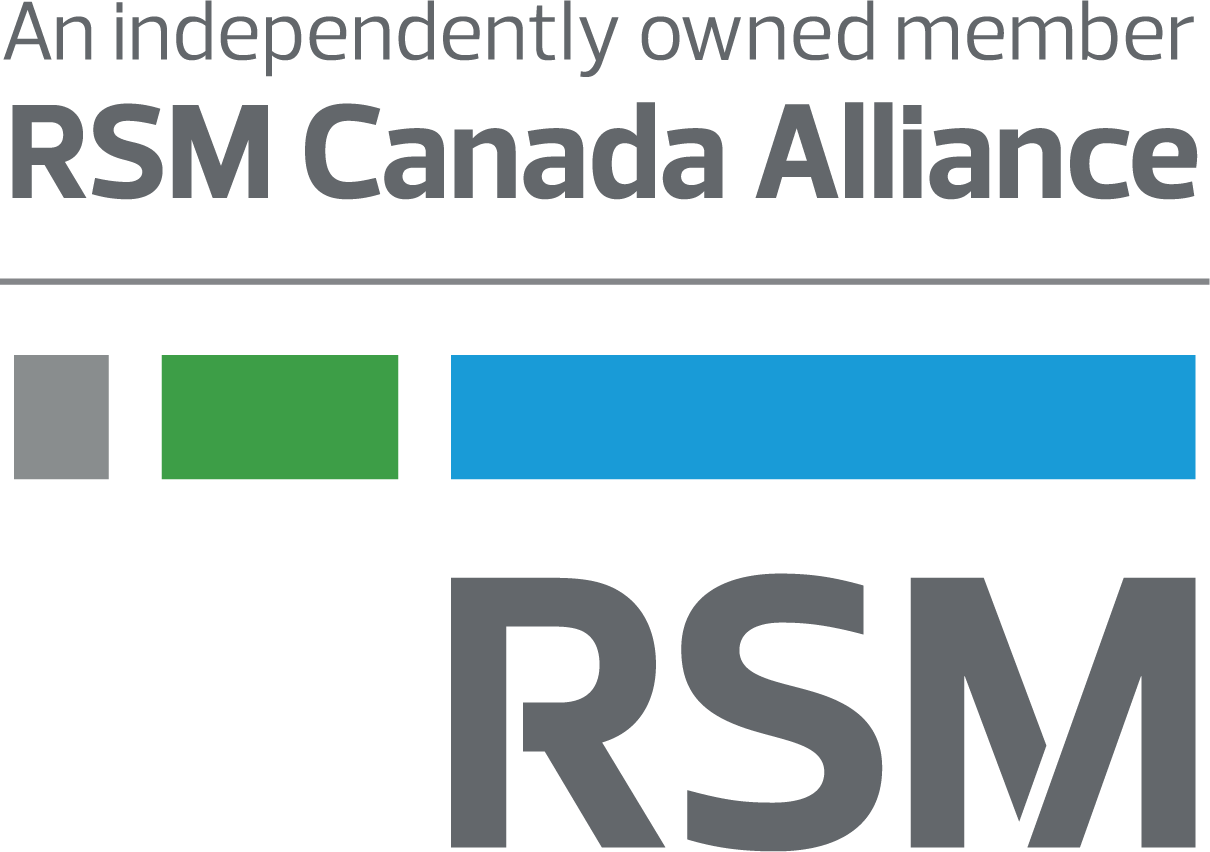
July 5th, 2024
Posted on October 18th, 2022 in Domestic Tax

Cryptocurrencies, non-fungible tokens (NFTs), and other digital assets have garnered significant interest and became popular investment tools for investors in all wealth brackets. Proactive planning of these investments can help taxpayers minimize their tax burden, stay ahead of evolving regulations, and pursue their personal wealth goals.
Digital assets are anything that exists only in digital form and comes with distinct usage rights. Historically, we used to associate digital assets with music on iTunes. However, with evolving technology, the biggest digital assets today are cryptocurrencies and NFTs.
Cryptocurrency is a medium of exchange that is digital, encrypted, and decentralized. Unlike traditional currencies, there is no central authority such as banks, that manages and maintains the value of the cryptocurrency. As a result, cryptocurrency mainly derives is its value from its utility such as the exchange of goods and services. NFTs are similar to cryptocurrencies as they are decentralized digital assets and mainly derive their value from their utility. Unlike fungible tokens such as cryptocurrencies, NFTs are unique and have been popularized as collectibles such as digital artwork and sports cards. They can also be used to digitally represent physical assets like real estate and artwork.
To garner attention and promote digital assets, many companies rewarded their early investors by distributing their cryptocurrency or NFTs to their investors’ wallets. These distributions are known as airdrops and can be considered similar to dividends from shares. To receive an airdrop, all you need is a valid digital wallet address (i.e. a public address from which cryptocurrency and/or NFTs can be sent and from). As sending and receiving airdrops are simple, companies, such as gaming platforms, distribute digital assets to add value to participating in an experience or activity. It is important that taxpayers regularly review their holdings and maintain proper books and records as airdrops do not require prior notification or consent from the intended recipient.
In general, possessing or holding a cryptocurrency is not a taxable event. However, when you use, exchange, convert, and/or gift crypto assets1, it can have tax consequences. The Canada Revenue Agency (“CRA”) treats cryptocurrency as a commodity2 for income tax purposes. As a result, when an investor exchanges one currency such as Ethereum (ETH) for a different currency like BitCoin (BTC), it results in a taxable event. The currencies being exchanged will be deemed to have been disposed of, which may result in unintended tax liability on the disposition and, a subsequent increase in the cost basis of the new cryptocurrency received.
When cryptocurrencies are used to purchase goods and services, CRA treats them as barter transactions3and deems those transactions to have occurred at fair market value. For cryptocurrency transactions, the value of the transaction can be easily determined by the price of the cryptocurrency on a crypto brokerage platform. All barter transactions must be reported on the taxpayer’s income tax return. If the taxpayer incurred any expenses (such as travel cost, internet, trading fees, etc.) to purchase the goods or services, the expenses can be used to reduce the income.
A crypto transaction can result in two different types of income/loss: (1) business income/loss and/or (2) capital gain/loss. To determine whether the proceeds are on the account of business or capital, the CRA looks at how the taxpayer conducted the business and their intent4. Even if the taxpayer has other employment or business income, the CRA can consider the crypto transaction as an “adventure in the nature of trade5” and deem the income to be business income6. For example, if a taxpayer trades cryptocurrency on a frequent and regular basis, he can be considered to be in the business of trading crypto, hence making the income business income subject to a 100% inclusion rate for income tax purposes, as opposed to 50% when taxed as a capital gain.
It is important to note that the onus is on the taxpayer to prove that the income was characterized appropriately7. The taxpayer should consider factors such as length of the ownership and frequency of trades when determining the nature of income. If an asset was purchased as an investment as opposed to for active trade, the cryptocurrency is likely to be considered capital property. RSM advisor can assist to ensure the nature of the holding and characterization of the income are properly document to minimize tax exposure.
With the recent economic downturn, investments in traditional and digital assets have lost value. As the CRA considered cryptocurrency to be similar to securities8, there are some restrictions on the deductibility of the capital losses incurred. Similar to securities, if a cryptocurrency is sold at a loss and reacquired within 30 days by the taxpayer or an affiliated person, it could result in a “superficial loss”9 which is not deductible for income tax purposes. Please consult RSM or your tax advisor to determine whether the “stop-loss rule” may apply and related considerations.
A common planning technique for high net-worth individuals is to consider moving their assets to a corporation in a tax-effective manner. This allows the growth in the assets and income to be taxed in the hands of the corporation, at the combined corporate tax rate of 26.5%10 (for Ontario corporations) rather than the personal tax rate of 53.53%11 at the highest personal marginal tax bracket. If the individual requires funds for personal use, the funds can be withdrawn from the corporation in various forms, each having a unique tax outcome. Please consult your RSM advisor to determine if transferring your digital assets to a corporation is best suited for your situation. A professional can help navigate various circumstances and aid in the determination of the most tax-efficient plan for you.
Cryptocurrencies can be considered “specified foreign property” for the purpose of informational reporting if they are located, deposited, or held outside Canada. Form T113512 – Foreign Income Verification Statement requires all Canadian resident taxpayers to report specified foreign property if at any time during the year the cost of the property owned by them is more than $100,000 CAD.
As Form T1135 is required only on assets held outside Canada, the requirements differ depending on the type of crypto wallet. Cryptocurrency can be held in cold and/or hot wallets: a cold wallet is secure and requires physical possession of the wallet. As cold wallet is situated where it is physically present, it is relatively simple to determine its location. A hot wallet, on the other hand, is connect to the internet and can be copied to a USB drive, it can be difficult to determine the location of the cryptocurrency. As the CRA has not provided a comment on how to determine whether the digital asset is “situated, deposited or held outside Canada13 for the purposes of section 233.3 of the Income Tax Act, we recommend that you discuss your wallet type and its location with RSM to ensure that proper disclosure is made.
In addition to entity-level reporting, to combat money laundering and terrorist financing, the Canadian government requires that accountants, financial entities, life insurance companies, brokers and agents, money services businesses, real estate companies, and securities dealers to submit a Large Virtual Currency Transaction Report (LVCTR) to the Financial Transaction and Report Analysis Centre (FINTRAC), when a taxpayer receives virtual currency of $10,000 or more.
Digital assets can present distinct estate planning complications that require a specific strategy as part of an individual’s estate plan.
When an individual passes away, there is a deemed disposition of all assets that the individual holds, and a subsequent step-up in the cost base14. The deemed disposition can have significant tax consequences with low-cost and high-value assets. It is important to weigh the benefits of isolating future appreciation from the estate versus keeping low-basis assets in the estate to receive a step-up in basis at death.
An alter-ego trust is common planning tool to isolate volatile investment from its beneficial owner. An alter ego trust is a trust under which the taxpayer is the Settlor, Trustee, and Beneficiary for as long as the taxpayer is alive. This means the taxpayer has the unrestricted benefit to the assets while alive, while being able to outline who gets the trust’s assets after death. Please consult an advisor to determine if this type of plan is suited for your situation.
Alternatively, gifting of digital assets during one’s lifetime is an option to transfer the future benefit to another taxpayer while also removing future appreciation from the estate. For Canadian tax purposes, there is no “gift tax” on a transaction noted above. As a result, the beneficiary receiving the digital assets is not required to report it and is deemed to acquire the asset at its market value15. However, the individual gifting the asset will be required to report the disposition at the market value. Please consult your RSM advisor before entering into this type of transaction to ensure there is no unwanted attribution in the income earned from gifting the digital assets.
As the crypto industry grows, there is an increased risk that CRA will begin auditing crypto transactions more frequently. As part of an initial audit request, CRA requires a taxpayer to provide a copy of the books and records showing a record of the crypto transactions that occurred during the taxation year. Many taxpayers may be inclined to send the auditors their wallet ledgers as it contains more information needed. However, the ledgers may not provide sufficient details about the transactions for a CRA to determine the nature of the transaction, whether it should be business income or capital gains,16 or the cost of assets transferred into a particular wallet. As a result, CRA could arbitrarily assess the transactions, which may result in negative tax consequences to the taxpayer.
To avoid an arbitrary assessment, it is highly recommended that taxpayers maintain adequate books and records reflecting their cryptocurrency transactions. Please see the CRA’s bulletin regarding the requirement of books and records kept. Please note that the reports prepared by various crypto transaction analysis software providers may aide in maintaining proper books and records. However, at this time, there is no guidance from CRA regarding the acceptance of software-generated reports as the only backup to crypto transactions.
Individuals and corporations who invest in cryptocurrency and other digital assets should evaluate their existing income tax planning strategies while keeping these assets in mind.
The digital assets space is constantly changing as governments look to regulate this area. RSM has a robust tax practice that serves these needs, and our team continuously and proactively reviews the landscape. Please consult your tax advisor for guidance on how to effectively plan with these types of assets.
This article was written by Clara Pham, Lingzi Layman, Chris Weinrauch, Crisbel Conradi and originally appeared on Oct 18, 2022 RSM Canada, and is available online at https://rsmcanada.com/insights/services/business-tax-insights/tax-considerations-and-planning-opportunities-for-digital-assets.html.
The information contained herein is general in nature and based on authorities that are subject to change. RSM Canada guarantees neither the accuracy nor completeness of any information and is not responsible for any errors or omissions, or for results obtained by others as a result of reliance upon such information. RSM Canada assumes no obligation to inform the reader of any changes in tax laws or other factors that could affect information contained herein. This publication does not, and is not intended to, provide legal, tax or accounting advice, and readers should consult their tax advisors concerning the application of tax laws to their particular situations. This analysis is not tax advice and is not intended or written to be used, and cannot be used, for purposes of avoiding tax penalties that may be imposed on any taxpayer.
RSM Canada Alliance provides its members with access to resources of RSM Canada Operations ULC, RSM Canada LLP and certain of their affiliates (“RSM Canada”). RSM Canada Alliance member firms are separate and independent businesses and legal entities that are responsible for their own acts and omissions, and each are separate and independent from RSM Canada. RSM Canada LLP is the Canadian member firm of RSM International, a global network of independent audit, tax and consulting firms. Members of RSM Canada Alliance have access to RSM International resources through RSM Canada but are not member firms of RSM International. Visit rsmcanada.com/aboutus for more information regarding RSM Canada and RSM International. The RSM trademark is used under license by RSM Canada. RSM Canada Alliance products and services are proprietary to RSM Canada.
 |
DJB is a proud member of RSM Canada Alliance, a premier affiliation of independent accounting and consulting firms across North America. RSM Canada Alliance provides our firm with access to resources of RSM, the leading provider of audit, tax and consulting services focused on the middle market. RSM Canada LLP is a licensed CPA firm and the Canadian member of RSM International, a global network of independent audit, tax and consulting firms with more than 43,000 people in over 120 countries. Our membership in RSM Canada Alliance has elevated our capabilities in the marketplace, helping to differentiate our firm from the competition while allowing us to maintain our independence and entrepreneurial culture. We have access to a valuable peer network of like-sized firms as well as a broad range of tools, expertise, and technical resources. For more information on how DJB can assist you, please contact us. |
Drop us a line, we look forward to hearing from you.